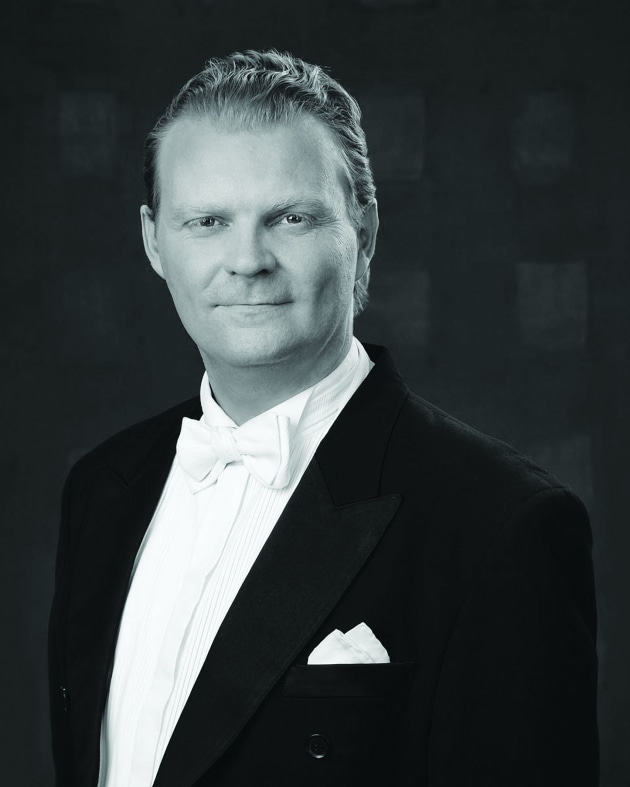LIMELIGHT - Conductor Simon Thew
Simon Thew is the assistant conductor for The Australian Ballet.

You trained in conducting at the Sydney Conservatorium, but your first instrument was the tuba. What do you like about that instrument?
The tuba has wonderful range of “voices”. There are the powerful and comical voices associated with the orchestral repertoire, then the amazing agile and lyrical voices required in solo repertoire and chamber music. It is also an instrument that makes you work hard to “master” it.
In 2007 your received the Dame Joan Sutherland/Richard Bonynge Travel Scholarship, thanks to which you ended up as music intern at Bayreuth Festival as well as spending time with the Vienna Philharmonic. What did that involve?
As a result of that scholarship I spent time in Barcelona, Vienna, Berlin, and eventually Bayreuth, studyingwith a number of conductors and having the opportunity, while in Vienna, to access rehearsals and performances of the orchestra both in the pit and on stage. My time in Bayreuth was thanks to one of my teachers, who was conducting Die Meistersinger that year at the festival, and was as the title suggests -- Music Intern.
In ballet you have conducted for the Birmingham Royal Ballet, the Houston Ballet and the English National Ballet. How does conducting for ballet with a ballet orchestra differ from opera or orchestral conducting?
How to put it in a nutshell… by combining music and dance, you are combining two artforms that speak different languages. The conductor needs to be the conduit between the two. One part of this is learning the language of ballet and how different dancers interpret the same choreography. Then when in rehearsal or performance, we are using your eyes to maintain that same contact with the dancers that you would by using your ears to listen to singers or a concerto soloist in another context.
You have worked on and off with the Australian Ballet since 2009 and were a Conducting Fellow in 2011 with Nicolette Fraillon as your mentor. What is one of the main lessons you have you learnt from her?
Across some self-funded study prior to two fellowships; Hepzibah Tintner Fellowship in 2010 and the Australian Ballet Fellowship in 2011, and almost constant work as a guest conductor since 2013, and now almost a year into a full-time position with TAB, it is difficult to boil it down to even a handful of lessons learned from Nicolette. She has been the main guiding force in my career in ballet to date.
What does your current job involve?
As well as conducting rehearsals and performances, I am “on call” to conduct performances I am not scheduled to, in case of emergency. I also have duties working with other departments within the company on behalf of the music department on things like scheduling, planning and technical requirements. I am also the first point of contact within TAB for the orchestras we work with, just to name a few things.
What has been your most challenging experience to date? A challenging yet exceptionally rewarding experience was conducting eight performances of Nijinsky in as many days last year. Not only challenging physically, but very challenging mentally, and emotionally. But, such an amazing work to perform that is so very rewarding as well.
What is the best piece of advice you have been given?
No good decision was made after 3am.
Simon Rattle says a conductor should listen to everything and every style of music. What do you like to listen to that is not within your normal area?
My listening habits are completely random and depend on my mood. If you had a look on my phone, you’d find music spanning 500 to 600 years, from the Renaissance to some popular music it’s probably best not to mention in print.
What works are in your bucket list?
I have been exceptionally lucky so far in my career across all genres. I’ve managed to conduct so many works I have wanted to conduct, including many cornerstones of the “core repertoire”. I don’t have a bucket list as such, but in the short term, I am very much looking forward to conducting Alice’s Adventures in Wonderland, a piece I have loved since I first saw it in early 2012.
This article first appeared in the December 17/January 18 issue of 'Dance Australia'.

